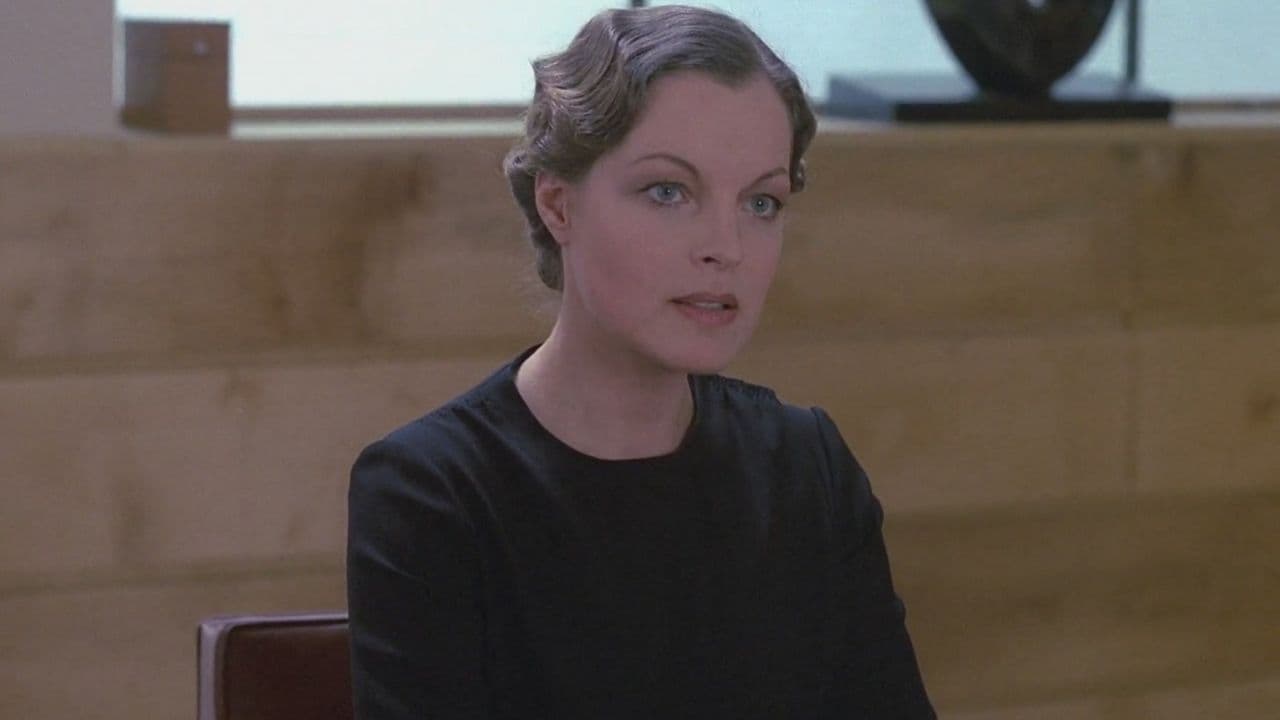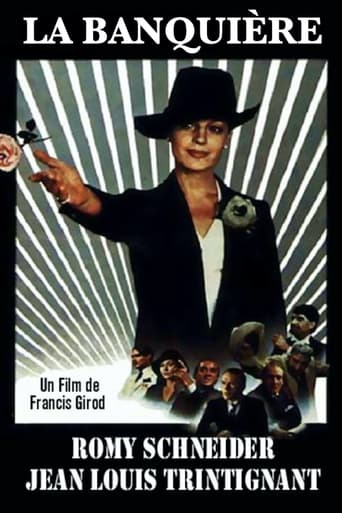

Entertaining from beginning to end, it maintains the spirit of the franchise while establishing it's own seal with a fun cast
... View MoreThis is a dark and sometimes deeply uncomfortable drama
... View MoreThere's a more than satisfactory amount of boom-boom in the movie's trim running time.
... View MoreThrough painfully honest and emotional moments, the movie becomes irresistibly relatable
... View MorePicturesque recreation of Paris between the wars to a strong score by Ennio Morricone that explores the intersecting worlds of commerce, journalism, finance, politics and the law through the career of Emma Eckhert, a Jewish girl who starts in the family hat shop, rises to running her own fraudulent bank, begins influencing national affairs and ends up in jail. Based on the real Marthe Hanau, she is played by the always-watchable Romy Schneider, who ably shows Emma's personal life as well: arranged marriage followed by divorce, two little boys to raise, lesbian amours and final affair with a young married politician whose beautiful wife seems ambivalent. While the story of Emma's public and private lives is interesting to see, casting a light on sectors of French society at the time, it could have been told in much less time with considerably fewer characters. The main justification for the film is therefore la Schneider. Among good supporting roles are Jean-Claude Brialy as her lawyer, Jean-Louis Trintignant as a rival banker and Marie-France Pisier as her lover's wife.
... View MoreFrancis Girod made a name for himself making really black portraits of life in France in the Nineteenth century and the Thirties of the Twentieth. No subject was too grim for this cheerful director--remember the trio of killers dissolving their victim in an acid bath (Le trio infernal, 1974). The story of Marthe Hanau, another forgotten name from the Thirties, must have appealed to Girod and Romy Schneider. Resnais had made his Stavisky with the same material and had had some success.This story moves at the speed of a retreating glacier. Many scenes go flat for lack of interest. It takes a Renoir to draw a portrait of a society in crisis, and Girod is no Renoir. I am a fan of Jean-Louis Trintignant, Jean-Claude Brialy, Marie-France Pisier and the other stars in the cast, but they are used only for window-dressing. Happily there is Romy Schneider, the most beautiful woman in the business in those days, and she does not disappoint. Her costumes are gorgeous, her hair never looked better, and she can swoop into a room better than any other actress. The way she spits out her defiance of the corrupt, conservative officials who oppose her kept me interested in the film.
... View MoreFilms as innovative as Citizen Kane inevitably have a lot to answer for as other - often inferior - talents divide up the techniques like relatives dividing house and contents of their late family member so no prizes for guessing what gave Francis Girod the idea to punctuate the story of Romy Schneider's banker via newsreels which conveniently display the dates, changing styles etc. As a bisexual Schneider should not be too surprised when she gets shafted by both male and female elements though arguably the one that hurt most was courtesy of Jean-Louis Trintignant who had her thrown into jail on a fraud charge, but then if you will offer 8 per cent interest when all around you they're offering one you're bound to be unpopular. For good measure Schneider is involved in a car crash and a stint in a mental hospital so you could argue she welcomed the bullet in the back albeit it came at the height of her fame. This is an absorbing film and if Schneider walks away with it that's not to say that Trintignant, Claude Brasseur and - in smaller roles - Daniel Auteuil and Thierry Lhermitte are chopped liver. Very well worth watching.
... View More